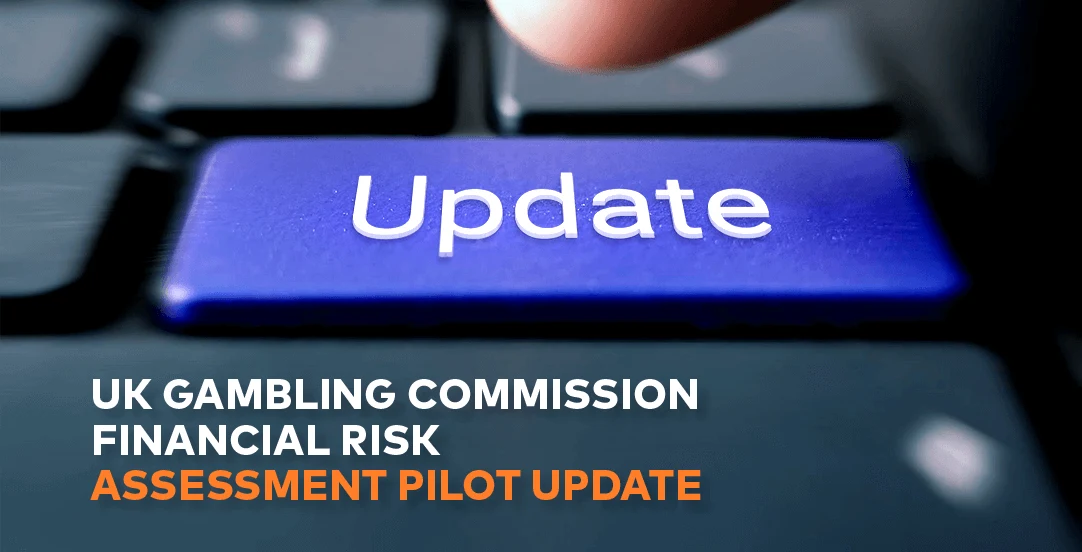UK Gambling Commission financial risk assessment pilot update

UK Gambling Commission financial risk assessment has emerged as one of the most closely watched developments in Britain’s evolving gambling regulation landscape. The latest pilot results not only offer a look into the future of player protection but also stoke ongoing debate over privacy, operational friction, and the very fabric of the market. As someone observing the iGaming space for years, I see this pilot as a pivotal case study, one that will shape how both operators and policymakers calibrate their approach to sustainable, socially responsible gambling.
Breaking down the financial risk assessment pilot – what’s at stake?
The UK Gambling Commission (GC) has been tasked with safeguarding players in an environment where digital gambling is both widely accessible and under growing scrutiny. The idea: use financial risk assessments struck a balance between preventing gambling harm and respecting user experience, a particularly sensitive topic post-pandemic, as online betting volumes accelerated.
The pilot is the Commission’s response to public and political demands for stronger guardrails around gaming, but it’s a nuanced departure from blunt “affordability checks.” These new assessments employ a more targeted approach, activating when a bettor’s net monthly deposits reach £500. Unlike previous proposals, these checks do not affect a customer’s credit score, nor are they universally or indiscriminately triggered.
Key findings – impressive frictionless rate sets a new benchmark
What makes the recent update remarkable is the pilot’s reported 97% “frictionless” completion rate in its second stage, up from 95% in the initial phase and far surpassing the government’s projected 80% figure outlined in the 2023 white paper. To put these numbers into perspective:
- the second stage covered roughly 1.7 million financial risk assessments across 860,000 player accounts,
- three credit reference agencies participated, ensuring a broad data base,
- of all checks that should take place under proposed thresholds, just 0.1%, about one in 1,000 accounts, both required an assessment and could not complete it frictionlessly.
The term “frictionless” here is crucial. It means players’ experience remained uninterrupted for the overwhelming majority, answering major operator and consumer worries about red tape and digital bottlenecks.
Understanding who is flagged and why it matters
The pilot’s scale allows the Gambling Commission to begin drawing sharper lines between routine customers and those at heightened financial risk. Data from two agencies found that individuals reaching risk assessment thresholds were:
- between two and five times more likely to have experienced a default or to be on a debt management plan in the past year compared with the general UK population,
- frequently already flagged by operators for other types of risk review,
- part of a small group accounting for the vast majority of interventions—emphasizing how targeted, data-led checks can be highly effective.
This finding is more than just a regulatory sidenote—it indicates the pilot is honing in on the intended audience, rather than sweeping up low-risk recreational punters or placing undue burden on the shoulder of every customer.
Regulatory backdrop – balancing reform ambitions and market realities
It’s no secret that the financial risk assessment pilot is both a centerpiece and a flashpoint within the government’s responsible gaming reforms. While many welcome a nimbler system to spot vulnerable individuals, horse racing stakeholders and major operators have cited fears of overreach, especially regarding privacy, the administrative load of hard checks, and potential ripple effects on sector revenues.
The Gambling Commission, however, has signaled it takes such concerns seriously. Notably, the pilot has only used historic account data, meaning no active customer sessions were directly disrupted. The GC’s ongoing collaboration with operators, frequent communication, and public transparency (including blogs and reports by director Helen Rhodes) reflect a shift towards iterative, consultative policymaking rather than top-down fiat.
Next steps – from pilot analysis to wider implementation
As the project enters its final analysis phase, the GC’s focus is twofold:
- exploring data consistency—ensuring that credit reference agencies produce compatible, reliable insights for operators,
- supporting operators in integrating risk warnings more seamlessly with other customer interaction and support tools.
With NatCen, an independent evaluator, involved in reviewing the pilot’s results, the GC appears committed to both empirical rigor and public accountability. The Commission has also aligned itself with the latest recommendations from the Office for Statistics Regulation (OSR), launching new initiatives for better data transparency, user-focused surveys, and outcome-oriented reporting—all aimed at making future policy more responsive and evidence-based.
The bigger picture – what does this mean for the UK iGaming sector?
For industry veterans like myself, the UK Gambling Commission financial risk assessment project’s progress resonates far beyond mere compliance. Consider these broader implications:
- if frictionless risk assessment can be proven at this scale, other high-stakes checks—identity, source-of-funds, anti-money laundering—may also become less intrusive without sacrificing security,
- operators are incentivized to modernize their internal data systems to maximize efficiency and reduce regulatory headaches,
- the UK’s approach could set a template for other regulated markets, especially those wrestling with balancing innovation against player protection.
There’s no doubt some operational pain points remain—particularly for smaller operators lacking resources to quickly adapt to new data requirements. Yet the pilot’s success on scalability and minimal disruption should embolden both policymakers and innovators.
The human factor – focus on protecting vulnerable players
Underneath the technical details and regulatory jargon lies the very real challenge of protecting individuals from gambling-related harm. With 97% of risk checks completed without friction, and those assessed shown to be at a disproportionately higher risk of financial difficulty, there is evidence the approach is both efficient and empathetic.
Importantly, this isn’t happening in a vacuum. The Gambling Commission and the broader sector—lotteries, sportsbooks, casinos—are increasingly measured by society for how well they balance entertainment with responsibility. Society lottery proceeds exceeding £1bn in the latest annual statistics illustrate the sector’s social impact, while new rules set to require customers to set financial limits before their first deposit suggest future reforms will be customer-centric by design.
Where do we go from here?
The next six months will be crucial. As the Commission moves from post-pilot analysis into proposed implementation, all eyes will be on:
- how operators adapt to integrated risk checks as part of customer journeys,
- whether industry and consumer resistance softens or intensifies in the face of mounting evidence,
- how effective these checks are in reducing genuine harm across segments, particularly for high-risk individuals.





















